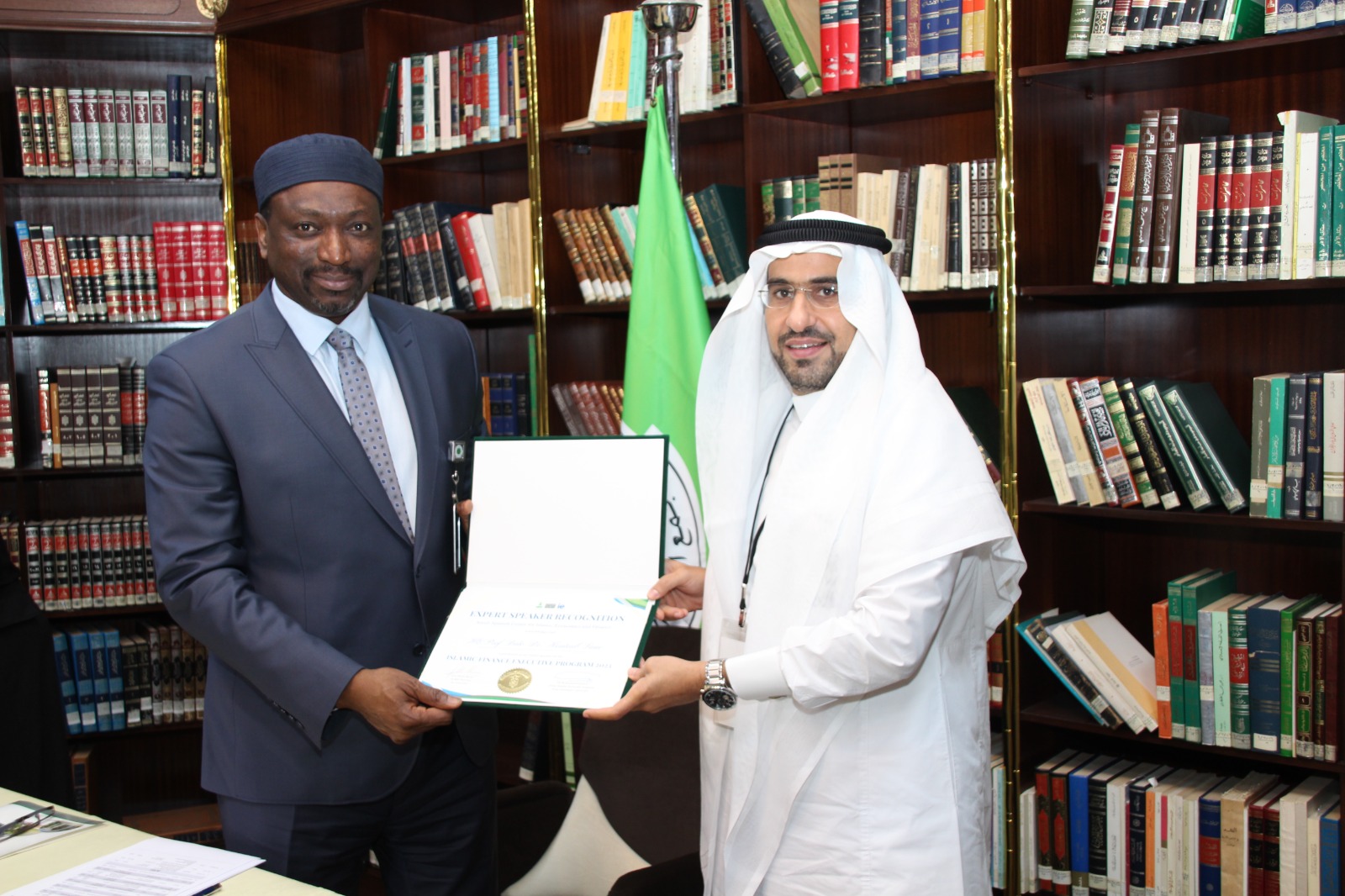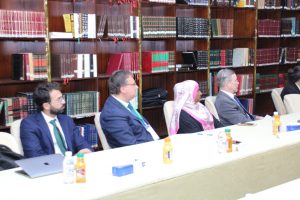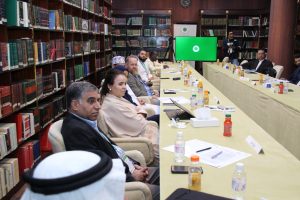
As part of its Executive Education programme, a delegation from the Islamic Economics Institute of King Abdulaziz University, including faculty members and over ten research students, attended a lecture by H.E. Professor Koutoub Moustapha Sano Secretary general of the International Islamic Fiqh Academy on Monday 29 Rabi Al-Akhir, corresponding to 13th November 2023. The faculty was led by Dr. Hasan Makhethi, Deputy Dean, Postgraduate Studies and Research, Islamic Economics Institute at the University. The faculty included eminent scholars and practitioners from different countries.
At the beginning of the lecture, a short film was shown on the history of the Academy its history, vision and achievements. Then, Dr. Kallem Alam the programme coordinated introduced Professor Sano with regards his vast academic career and expertise in Islamic law and Islamic economics and the great role that the Academy is playing in responding to the challenges and new developments on different issues. Dr Kallem Alam also thanked Professor Sano and his officials for the hospitality and warm welcome.
H.E. Professor Sano welcomed the faculty members of this great University of the Kingdom of Saudi Arabia, thanking them for having this session at the Academy with this caliber of experienced people in different industries and fields. He added: “This is a great initiative for more collaborative arrangements with the University and particularly the Institute of Islamic Economics”. Then, a lecture by Professor Sano where he focused on the importance of fatwa, methodology of fatwa, fatwa for financial products and the approach adopted by the Academy with regards to collective Ijtihad. At the beginning of the Lecture titled: “methodology of Issuing fatwa for Financial Products”, Professor Sano states: “fatwa has been the main recourse of Muslim communities in order to know Sharia provisions on calamities and developments. It is of utmost importance in shaping the contemporary Muslim mind, defining its identity, and its view of itself, its society, and the world around it. Therefore, it is not surprising that the practice of this honourable task remains sacred throughout history, based on its influence on perceptions and practices”. He added: “However, it is unfortunate what we see today frantic strife from incompetent people would take it as a vehicle for false fame, a deluded popularity, and toxic ideological means to spread problems and political unrest. There is a need to provide the necessary protection mechanism for this honourable profession and achieving decisive legal framework that protects the people and the country from the unjust and ambiguous fatwas issued by those who are not qualified”.
On fatwa for financial products, Professor elaborated on the need for fatwa for alleviation of poverty, social inclusion of the marginlised, social mobility, combating ignorance and promoting education, combating exclusion, combatting extremism and extremist ideology, reduction of societies’ poverty, famine, and unemployment. It also contributes to the achievement of sustainable growth and the need to support humanitarian work to provide relief to disaster victims, those affected during epidemics, and the displaced during conflicts, whether the beneficiaries are Muslims or non-Muslims.
Finally, Professor Sano echoed the approach adopted by the Academy anchored on collective ijtihad in calamities and issues submitted to it, and its council includes many senior jurists of the Ummah from other Islamic countries, who represent the member states of the Organization of the Islamic Cooperation, in addition to a large number of experts in various disciplines: jurisprudence, economic, medical, family and criminal.
Professor Sano reiterated on the importance of rationalisation of Fatwa, credibility and professionalism detached from sentiments, regionalism and other parochial perspectives.
L
astly but not least, HE Professor Sano exchanged gifts with his guests from the University. They presented to Professor Sano a certificate to express their profound gratitude and in recognition of his scholarship, experience and expertise in Islamic economics and finance.
Read Also
Lastest











